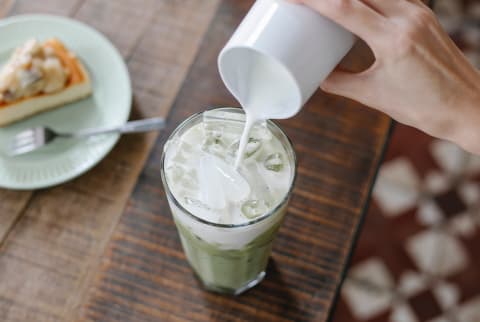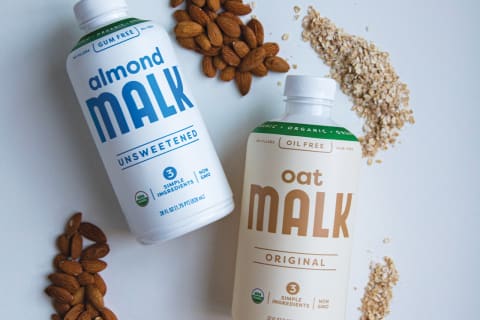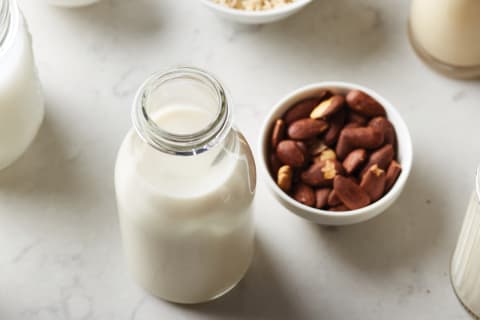Unfortunately, there is no check and balance in our food system to assess how food and food additives interact with our microbiome. Foods are generally regarded as safe (AKA—GRAS status1) by the FDA based on their toxicity to us, not our microbiota. And while extensive research shows that the quantity and diversity of plant-based foods promote a healthy and robust microbiome, we are just beginning to understand the safety and impact that additives like emulsifiers in our alternative milks have on our microbes. Because so much is unknown, I turn to products that are taking a stance against using these unnecessary additives like MALK and their delicious plant-based milks. Human studies in the last two years are echoing animal studies, indicating emulsifiers may have a direct impact on the human gut microbiota and an induction in epithelial inflammation. A 2021 study published in Microbiome looked at the impact of 20 emulsifiers on microbiota and concluded that the vast majority, 18 of the 20, alter gut microbiota in a manner expected to promote intestinal inflammation. Carrageenans and gums altered microbiota density and composition and increased the expression of pro-inflammatory molecules the most whereas lecithins had the least impact. Even still, emerging evidence suggests emulsifiers are breaking down intestinal barrier function and increasing antigen exposure, increasing the incidence of inflammatory bowel disease and metabolic syndrome. And while Crohn’s patients have been encouraged to avoid emulsifiers in functional practice, a 2020 feasibility trial finally concluded that investigating the efficacy of a low emulsifier diet in Crohn’s disease was warranted. For many of my clients, that’s coaching them to take stock of what’s in their fridge and lower their consumption especially on everyday offenders. That can be as simple as making the swap to an emulsifier-free nut milk in their smoothie, like MALK—a plant-based milk made with just three simple ingredients and containing no gums, oils, fillers, or artificial anything. I know they aren’t sacrificing taste, and they won’t notice a difference in their smoothie. That said, if they splash it in their coffee without an emulsifier, they’ll notice separation—but I have educated them to understand one rule: If it doesn’t separate, it’s not great. LeVeque is passionate about the science of human nutrition. Driven by the desire to help her clients, and her own intellectual curiosity, she studies the latest research, evaluates competing theories and reads everything. Most importantly, she uses that knowledge to make individualized recommendations for her clients. She also loves to cook. LeVeque believes in real food, real ingredients and a clean diet. The Be Well kitchen is constantly buzzing, and loves creating tasty, clean, nutrient-dense recipes and dishes. Before starting her consulting business, LeVeque worked in the medical field for Fortune 500 companies like J&J, Stryker, and Hologic, eventually moving into personalized medicine, offering tumor gene mapping and molecular subtyping to oncologists. She is a regular contributor for numerous health, wellness and lifestyle publications. LeVeque rounded out her education with a number of other certifications including being certified as a Health Coach through The Institute for Integrative Nutrition, her RYT-200 training though the American Yoga School, and NSCA-Certified Personal Trainer® (NSCA-CPT)® certification through the National Strength and Conditioning Association.




